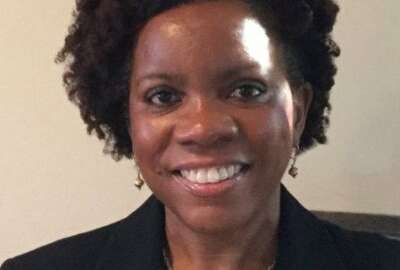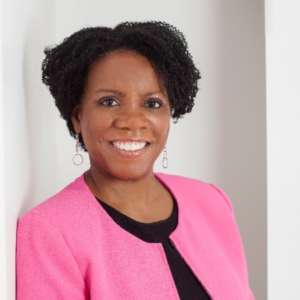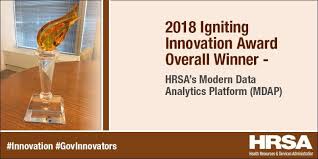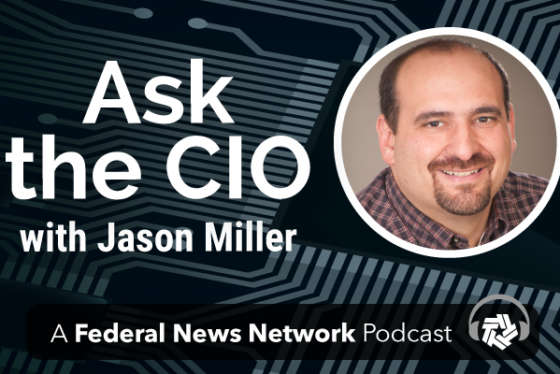
Data integration effort delivers savings, better decision making for HRSA
Adriane Burton, the Health Resources and Services Administration’s CIO, said a new data analytics platform is key to improving how HRSA manages its grants...
Best listening experience is on Chrome, Firefox or Safari. Subscribe to Ask the CIO’s audio interviews on Apple Podcasts or PodcastOne.
The Health Resources and Services Administration awarded $11 billion in grants across 90 programs in fiscal 2017. And with that comes petabytes of data and the need to analyze that information.
Adriane Burton, the Health Resources and Services Administration’s chief information officer, said a new modern data analytics platform holds the key for improving how HRSA manages its grants process.

“We developed this platform as a framework to automate the collection of data, automate data analysis and improve data reporting for many of these programs,” Burton said on Ask the CIO. “This is important because 26 million people in the United States use our health center programs. Over 500,000 people use our Ryan White programs. This is just two of our 90 programs. Our solution is innovative because we are automating the collection of health center data. This reduces the burden for more than 1,400 grantees that provide service delivery at 10,400 sites. This improves data quality and use. It helps us to better describe the impact of the health center program.”
Burton said the platform combines hundreds of data fields from all phases of the grant process, including planning, application, review, award and post-award. Then, the information is organized by domains like finance, risk and performance.
“We now have our data integrated instead of having our data in siloed instances,” she said. “We have self-reporting tools, which is another thing that makes it innovative because it allows our users to discover, draw and share insight among their teams. This has improved both their speed and confidence in decision making.”
This means executives don’t have to wait for someone to generate a static report, but they can query the database and see real-time data to address challenges more quickly.
Last year, HRSA generated about 170 ad hoc queries requiring IT support. Burton said these reports would take a week or more depending on the request and how easily they can find the data. Now the data platform has reduced by 40 percent the time it takes to get these reports.
“With this interactive field, you can add additional fields and generate reports more quickly,” she said. “We are probably avoiding about $1 million a year with not having to go and generate these reports.”
Burton said the data platform also drives standardization of tools for all public health analysts so accessing the right data that will lead to better outcomes is easier.
“When we implemented the system, we made sure that it could be scalable. It has the flexibility to not only support one of the programs, but all the programs that utilize the system,” she said. “What has happened is that when one of the bureaus sees some of the dashboards from another bureau, they will come up with ideas for different dashboards they would like to see for their programs. There is a lot of synergy across the different bureaus and offices, and because the underlying capability is there so we just need to tailor a dashboard to meet their specific program needs.”
It’s not only HRSA employees and managers but grantees as well who use the data analytics platform.
Burton said the benefits for HRSA’s customers is clear in reducing their data collection burden.
“We worked on the capability to help automate the collection and the validation of the data,” she said. “We also made the data more available to our programs, our management and the general public.”
HRSA’s efforts won them the prestigious Igniting Innovation grand prize from ACT-IAC.
“I think it’s exciting for our program. They use the system every day and it’s transforming how they do business, and that’s what’s important,” Burton said. “It’s exciting for my IT folks because they are excited to see the impact and outcomes. They are excited about how this vision they had a couple of years ago are now starting to see the impact.”
Burton said the award also reemphasizes the importance for HRSA to be innovative in how they meet their mission goals, which is something Administrator Dr. George Sigounas has promoted.
ACT-IACT named 40 finalistsfor the fifth annual competition. Previous grand prize winners the are U.S. Citizenship and Immigration Services for its myUSCIS.gov platform in 2016 and its verification system modernization effort in 2017, and the Social Security Administration’s open source platform to deal with improper payments in 2015.

Burton said the recognition also gives her office confidence to try other innovations, including the use of Amazon’s Alexa for its electronic handbook system.
The data analytics platform still resides in HRSA’s on-premise data center, but Burton said she would like to move it to the cloud in the coming year or so for better scalability
“We use agile and implemented dev/ops and started using micro-services as well,” she said. “We’ve been doing micro-services for the last year-and-a-half to enhance some other capabilities in our performance reporting system.”
Copyright © 2024 Federal News Network. All rights reserved. This website is not intended for users located within the European Economic Area.
Jason Miller is executive editor of Federal News Network and directs news coverage on the people, policy and programs of the federal government.
Follow @jmillerWFED
Related Stories





